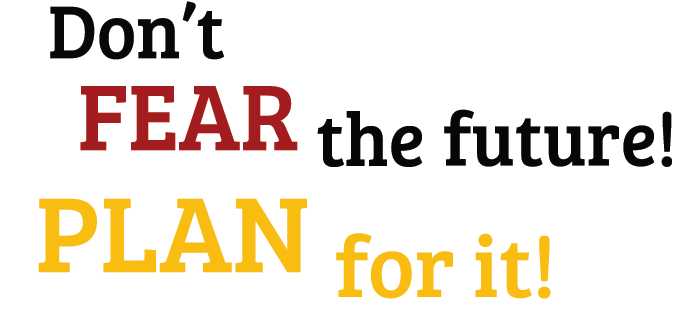WHAT BLOCKS FUTURE PLANNING (April 3, 2018)
WHAT BLOCKS FUTURE PLANNING
Everyone involved in the business world is aware of the importance of planning; take a look at your meeting schedules, your diary or your inbox and I’ll bet that at least 50% of your time is taken up with planning. Nothing wrong with that, of course: every business needs clear long-term strategies for success (although I would argue that there’s far too much “window dressing” planning, producing plans for the sake of it which will never really be fulfilled and which in fact mitigates against putting useful plans into action, but that’s a subject for another blog). But how much planning do we actually put in place for our own lives, what strategies do we have in place to make sure that we achieve our objectives, both personally and professionally, not just those of our employer?
This question is particularly pertinent for young people; when I’m working with them I’m struck again and again by the limitations of their future planning. Often their plans are disjointed: go to this college, do this job, live in this town… that’s linear planning, I’ll do this and then take the next step.
At my Vision Camps I teach holistic planning, making plans based around vision and values which inform every step of the way, rather than setting one goal to be followed by another, and another, and another, with no sense of the optimal outcome, just a desire to keep plodding on the journey. We need to help young people escape from planning which has no coherent aim in sight, just a desire to keep moving upwards. As the Google executive Mo Gawdat has pointed out, “there’s no point in imagining that happiness will be reached with success: every time you take a step up, all you’re doing is getting to a place where another step up will be needed; happiness isn’t the other side of success, you have to plan it into your success as you go.”
So what makes it so difficult for young people to make these sorts of future plans? I believe that it’s simply because we haven’t shown them how to do so. Society lays out the conventional path, the qualifications, the career, the lifestyle; where do we talk to our young people about remaining true to your values, doing something that you believe in? At best these things are regarded as desirable add-ons to the main plan. This means that the majority of young people are blocked in their future planning into a set channel, defined by their education, their background, their race, their sex and many other factors. In my camps I teach young people to create expectations, not to follow them. It sounds like a semantic quibble, but truly the two things are a world apart.
Young people are frequently extraordinary in their ideals and their passion for what they want from their futures, but too often their vision is blocked from their planning by conventional thinking. When properly encouraged to plan for the future in a visionary and holistic way they become in tune with their remarkable potential and extraordinary results become possible.
If you would like to see how core leadership principals apply to your every day life, take our short survey.

